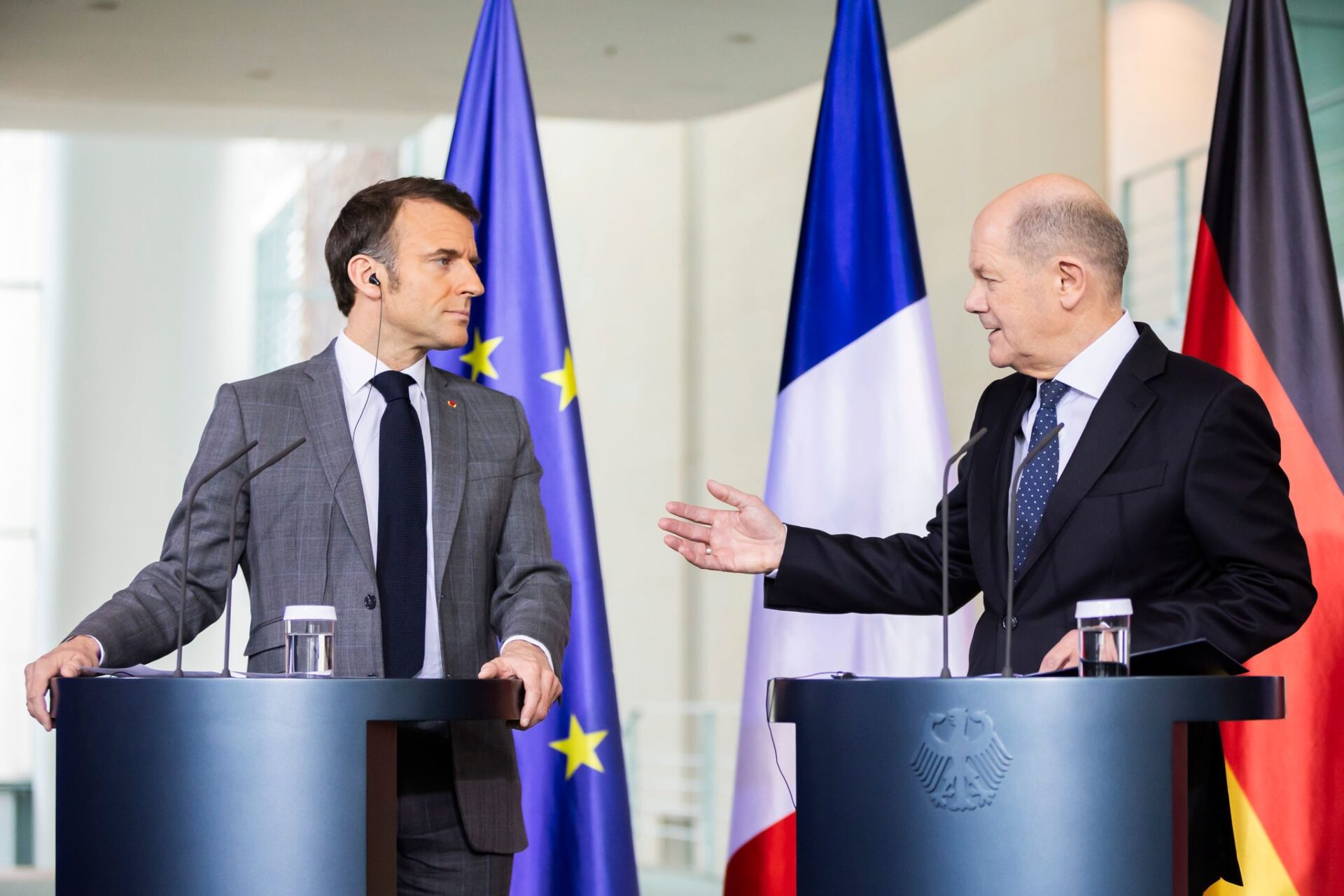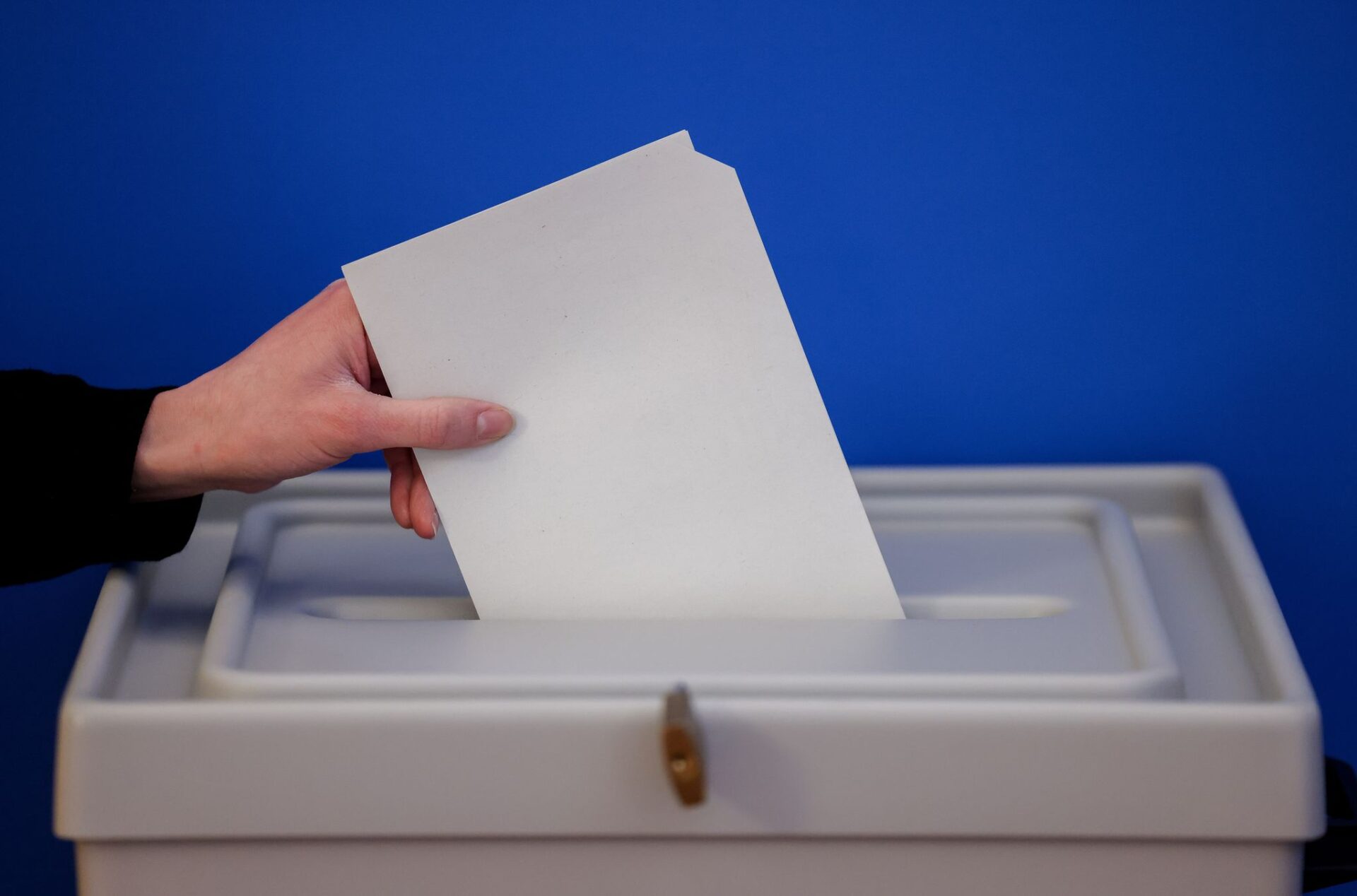 Have the article read by OpenAI (Beta). Please note that AI translations may take some time to process.
Have the article read by OpenAI (Beta). Please note that AI translations may take some time to process.2024 has been an electoral year of global dimensions, with presidential and legislative elections in 74 countries and results favouring a range of political preferences.
However, some common denominators could be identified, such as an average rise in participation and a general predominance of the “punishment vote”, a tendency to penalise the parties in government at the polls.
Results marked a case of firsts for some countries: Mexico and North Macedonia, for example, saw their first ever female presidents take office this year. Romania saw its presidential election annulled after the first round, also a historic first.
European Elections – a tilt to the right
The European elections in June, one of the major global elections of 2024, drew a new European Parliament more tilted to the right, reflecting a more conservative tendency in many countries of the European Union. It also gave rise to a European Commission more dominated by the centre-right conservative European People’s Party (EPP) than ever before.
The European Centre for Populism Studies indicates in a recent report that no fewer than 60 populist parties from 26 EU member states obtained representation in the European Parliament in the June elections, while in 2019 the numbers stood at 40 in 22 countries.
The consolidation of the populist right was confirmed in the European elections and in national elections in 2024 in Europe, where more and more far-right parties are part of coalitions, as in the Netherlands, or constitute an important weight in the balance of power.
According to the report, the populist right has established itself in practically all member states and has performed particularly well in countries such as France, Germany, Austria, Romania and the Netherlands.
An annulment, a petition for one, snap elections and political turmoil
In a historic first, Romania’s election has been annulled amid reports of Russian interference in the election process in early December. In Bulgaria, citizens were asked to vote for the seventh time in just four years and the two largest EU economies – Germany and France – have also seen their share of political turmoil.
Romanians recently went to the polls to vote in the first round of presidential elections which pro-Russian Calin Georgescu won against all odds. Following the outcome, the entire electoral process was – controversially – annulled by the Constitutional Court of Romania (CCR) on December 6, two days before the second round of voting. Voting abroad had already started.
Intelligence services reported that Romania was “a target for aggressive Russian hybrid actions” and the court argued that the entire election process had been flawed. Voters were said to be misinformed in an electoral campaign before the election, according to the CCR. One candidate benefitted from aggressive promotion which circumvented election rules as well as through abusive exploitation of social media platform algorithms.
Bulgarians saw their country’s sixth and seventh parliamentary elections within four years in 2024. Government-forming negotiations are ongoing. While pro-European coalitions GERB-UDF and CC-DB remain the two largest political forces, far-right party Vazrazhdane came third standing at over 13 percent and less than one percent short of CC-DB. The party also made its debut in the European Parliament after the June elections with three MEPs joining the far-right Europe of Sovereign Nations group.
In early November, Bulgaria’s Constitutional Court opened a case contesting the legality of the election of MPs in more than 50 voting sections in the October elections. The petition, brought by members of the former National Assembly, highlighted alleged violations that took place during the voting process, including vote buying, rigged vote counts, transfer of votes from one party to another, and lack of the mandatory video surveillance of the vote count.

In France, political instability in the EU’s second-largest economy followed early parliamentary elections called by French President Emmanuel Macron in June. This came after the far-right scored high in the European elections. While the far-right National Rally (RN) won the first round in the parliamentary elections, it suffered a defeat in the second round, hobbled by electoral pacts between the left and Macron’s centrists. On December 13, Macron named centrist François Bayrou as prime minister, handing him the daunting task of hauling France out of months of political crisis.
He was appointed shortly after parliament ousted former prime minister Michel Barnier‘s government in a historic no-confidence vote following a standoff over an austerity budget. Bayrou is the sixth prime minister of Macron’s mandate and France’s fourth prime minister of 2024.
In neighbouring Germany, the country’s Chancellor, Olaf Scholz, lost a confidence vote in parliament on December 16, paving the way for early elections in February that could end his time at the helm of Europe’s biggest economy and return the conservatives to power.
Scholz immediately asked President Frank-Walter Steinmeier to dissolve parliament, the next step on the path to holding polls, some seven months earlier than originally planned. The president has 21 days to make that decision, a step considered a formality.
Even though Scholz lost, as expected, it was the outcome he had sought. His coalition collapsed following months of fierce infighting over how to fix Germany’s ailing economy and fill a multi-billion-Euro gap in the 2025 budget.
Scholz has already been chosen as the SPD’s top candidate for the election, even though current polls put his party in third place, behind the conservative CDU/CSU bloc and the far-right Alternative for Germany (AfD).
In Austria, the far-right Freedom Party of Austria (FPÖ) has established itself as the country’s strongest political force this year, winning the European elections in June with 25.4 percent and then also the general elections in September with almost 29 percent. But the party remains far from power due to a coalition that three other parties – the conservative Austrian People’s Party (ÖVP), the social democratic SPÖ and the liberal Neos – intend to form, which plans to start governing next January, provided they reach an agreement.
In Croatia, unlike some other EU member states, there have been no major changes and the situation remains as stable as before. Parliamentary elections were held in mid-April. A month later a new government was formed, headed by third-time Prime Minister Andrej Plenković (HDZ, centre-right) who’s held the role since 2016. On December 29, Croats will go to the polls again in the first round of presidential elections. Should no candidate win an outright majority, the second round will be held on January 12.
Elections in the EU neighbourhood and around the world
The United Kingdom, an EU member until 2020, saw the Labour Party triumphantly return to the helm of the government – with Keir Starmer as Prime Minister – after 14 years of conservative rule.
North Macedonia held presidential and parliamentary elections in spring. Conservative Gordana Siljanovska Davkova (VMRO-DPMNE) became the first female president of the country. The electoral coalition “Your Macedonia” of VMRO-DPMNE, led by Hristijan Mickoski won, putting the DUI party which had been in power for 16 years in varying coalitions into opposition.
Nestled at the intersection between Europe and Asia, the former Soviet republic of Georgia went from being a star pupil of the European Union in the post-Soviet space to being the last in line for accession. After a process of rapprochement initiated almost two decades ago, Tbilisi chose to freeze negotiations for accession to the EU, which led to mass protests.
Tensions date back to 2023, when the parliament began debating a Russian-style law on the “transparency of foreign influence”. The situation worsened after the incumbent and pro-Russian “Georgian Dream” party, which has been in power since 2012, won the parliamentary elections in October. The victory was not recognized by the opposition and the West, which denounced electoral fraud.
The political turmoil intensified after Tbilisi decided to freeze dialogue with the EU, repressed massive pro-EU protests and the election of the pro-Russian Mikhail Kavelashvili as president by parliamentary vote.
In EU accession candidate Moldova, elections took place, too. Pro-western Moldovan President Maia Sandu won a second term in office. Sandu’s challenger, Alexandr Stoianoglo, who was considered the pro-Russian candidate, garnered about 45% of the vote.
Voter turnout in the country, torn between the European Union and Russia, was higher than in the first round on October 20, with more than 54% of voters taking part in this round. The voting day was punctuated by allegations of Russian interference by Sandu and her national security adviser Stanislav Secrieru. The EU accused Russia of “unprecedented” meddling in the votes in Moldova that were seen as among the most pivotal in the country’s post-Soviet history.
But not only in Europe have citizens been called to the polls: In India, the world’s most populous country, general elections were held – a process so large that it required a month and a half of voting. With Claudia Sheinbaum, Mexico saw its first-ever female president take office. But also across the northern border, in the United States of America, presidential elections have been held with Donald Trump set to return to the Oval Office in January 2025 which sparked much discussion on the future of EU-US relations.
*This article doesn’t include an exhaustive list of all 2024 elections but is a selection of coverage by news agencies participating in the European Newsroom (enr) and their coverage focussing on elections across Europe. The European Newsroom produced a Key Story focussing on the elections in Georgia and Moldova in the past which you can find here.
This article is published twice a week. The content is based on news by agencies participating in the enr.
